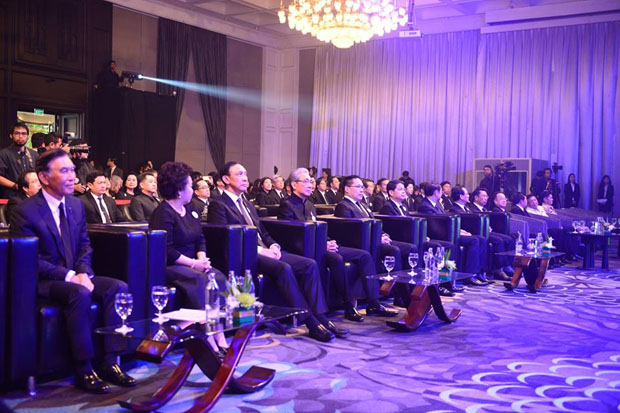
The government and private sector will invest about 400 billion baht in developing a bioeconomy over 10 years, building refinery complexes and their cities in Rayong and Khon Kaen provinces that will turn cassava and sugarcane into high-value products.
Announcing the plan at a Bangkok hotel on Monday, Deputy Prime Minister Somkid Jatusripitak said the government, the private sector and educational institutions would develop biorefineries to process cassava and sugarcane into highly valuable products.
"New cities, biopolises, will be built to facilitate a bioeconomy and comprehensive innovation. About 400 billion baht will be invested in the bio-industry over 10 years. The first phase is set to start in 2017-2018 with an investment of about 51 billion baht," Mr Somkid said at a media conference.
The scheme could start right away in the eastern province of Rayong and later expand to the northeastern province of Khon Kaen and nearby areas, he said.
Thailand was among the world's top exporters of cassava and sugarcane. The scheme should increase the value of cassava by 100 billion baht per year and sugarcane by 300 billion baht per year over the next decade.
Farmers could improve incomes, more than 20,000 jobs would be created in production and research, and the bioproducts should substantially reduce emissions of carbon dioxide from the exploitation of fossil fuels, Mr Somkid said.
Energy Minister Anantaporn Kanjanarat said the bioeconomy project would cover biofuel, biochemicals, future food, future feed and biopharmaceuticals. Biofuel could begin first because it had been developed for a while.
Prasert Bunsumpun, chairman of PTT Global Chemical Plc, which leads the private sector in the scheme, said planned investment would be 182 billion baht in the second phase from 2019 to 2021 and 132 billion baht in the third phase from 2022 to 2026.